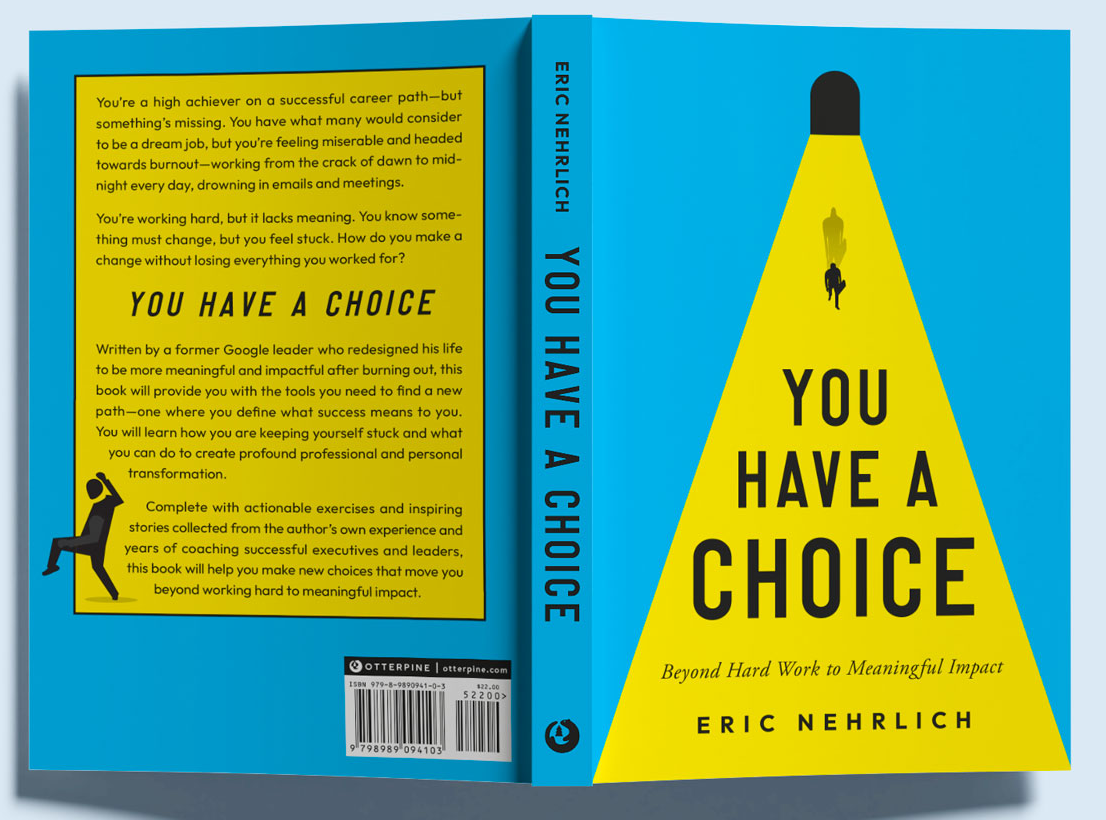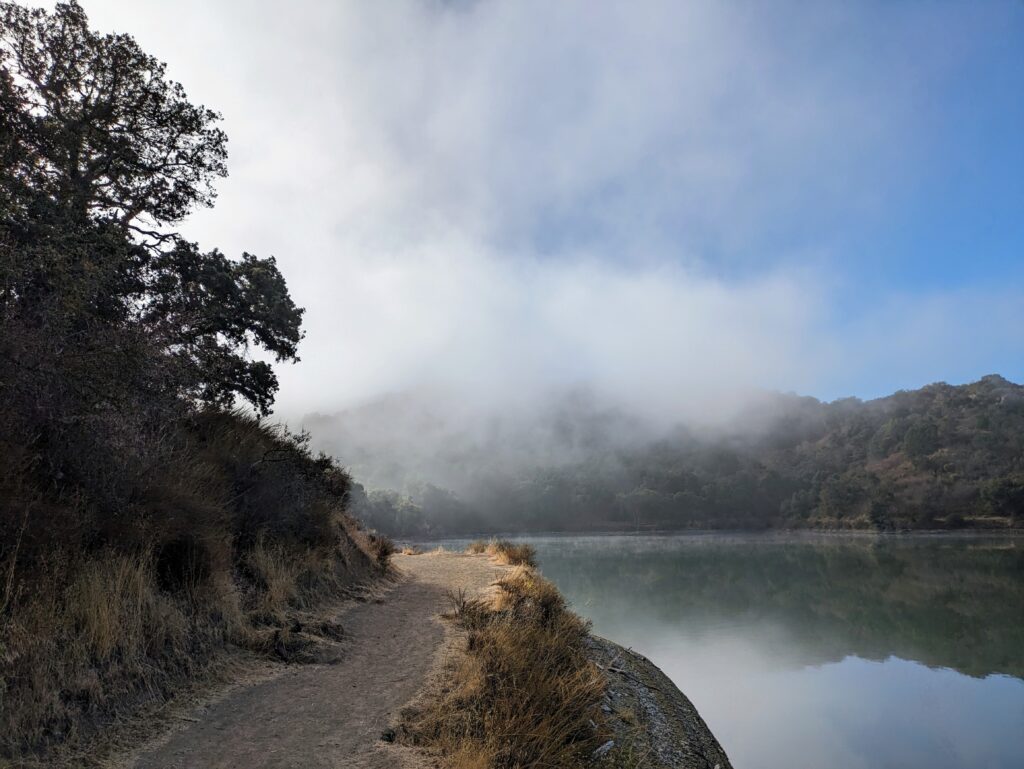|
|
|
|
This is the Too Many Trees newsletter, where I share what I’ve been writing and reading in the realm of leadership and personal development. My executive coaching practice is centered around the idea that we are more effective in moving towards our goals when we become more conscious and intentional in focusing our time and attention, and learn how our unconscious patterns are holding us back. If you know somebody that could benefit from my perspective, please forward this to them or let them know they can set up a free intro chat with me.
|
|
The book is almost here!
|
|
|
|
I was looking back at my newsletter archives, and it was a year ago on October 24, 2022 that I asked for reader input on an idea I had for a book designed to "get the reader from the edge of burnout to thriving". That book, titled You Have A Choice: Beyond Hard Work to Meaningful Impact, is now ready to be launched into the world on November 6th! I received a preview copy from Amazon, and it was thrilling to hold in my hands a book that I had written.
|
|
|
|
|
This book is designed for people who are stuck because working harder isn't working for them. They have had success in their career but are blocked from further advancement, often because they are holding onto mindsets or behaviors that are keeping them in place. I redesigned my own life after burning out at Google in 2011, and now help leaders as an executive coach to find a new path forward. I wrote this book to share what I've learned with a wider audience, because I want to help more people than I can coach individually. I hope I can reach people like my younger self before they burn out.
|
I use two principles throughout the book:
|
- How are you the problem? I explore how your mindsets and behaviors are keeping you stuck, not just other people or outside circumstances. The only thing you control is your own behavior, so that's what we examine to explore how you can change the situation.
- You have a choice. Once you see the ways in which your mindsets or behaviors are limiting you, what will you do differently? I take real life examples of frustrations and use this framework to identify different choices one could make. For instance, if you feel trapped in a job that pays well but is stressful and exhausting, you could explore how to lower the costs of your life with the FIRE movement, or look for ways to shape your job to be less stressful and more energizing.
If this resonates with you, I would love your support as I launch the book into the world. The best marketing is for people to buy, and read, and review, and recommend the book. People purchasing and reviewing the book are the signals that matter most to Amazon's algorithm, so please consider checking out the book.
If you are willing to read a pre-release PDF copy in exchange for writing an Amazon review the week of November 6th, please fill out this form. I have also scheduled a launch day celebration including live Q&A for those that provide early support for the book.
|
If you want to hear me talk about some of the themes of the book, check out this podcast interview I did with Paul Maniaci of the Columbia University Career Design Lab.
|
|
[Apologies for those of you getting this multiple times, as I've sent it to clients, friends, and LinkedIn, but I had to complete the announcement week with this newsletter]
|
|

|
|
|
|
|
And now for the normal personal development content…
|
LinkedIn: These are ideas that have helped my clients (or myself), and that I share via LinkedIn to help a wider audience, and archive here.
|
|
|
|
I have been staying silent about the horrific deaths and atrocities in Israel and Palestine, because I don't know what to say and fear that anything I post will be interpreted poorly. Some posts I've been reading:
|
- I don't have to post about my outrage. Neither do you. Elizabeth Spiers writes about her complex, uncertain thoughts about the conflict, and laments that "a reactionary social media post tells you nothing about what they really think or know, cheapens the discourse and impedes progress. It’s sloganeering masquerading as moral clarity."
- As a counterpart, Josh Gilmans writes Why you might have lost all your Jewish friends this week and didn’t even know it: "here is what your Jewish friends are wondering right now. So, why didn’t you post… this time? It’s a genuine question. Because they need to know the answer. ... They are wondering if you are safe. ... unless you have proven that you will stand with me, I will not run to your home if they come for me and my family."
- Questioning War, by Charlie O'Donnell. "I would submit that the most human and empathetic thing we can do right now is have a serious conversation about the ultimate cost of war. We have to be able to do that without being accused of not caring about the hostages or the victims of these attacks." He reflects on the American response to 9/11 and the cost in human lives due to that military response and suggests: "If you don’t pause to seriously consider the cost and the part you’ll play in continuing cycles of violence, no matter what the social cost of doing so at the moment, you may live to regret it."
- Tending, by Sarah Menkedick compares our current social media environment to the Hunger Games: "does doing what most of us do right now – which is go online – really help. Us, or anyone. I am open to ideas here. But what I’ve found for myself is that like Katniss, I am simply performing for a white-walled room of cynical techsperts who make more and more money the more outraged – “engaged” – I become." I appreciate her advice to embrace the fullness of presence in daily activities and in connecting with real people. "Peace be with you. And also to you."
|
Thanks for reading! See you in a couple weeks on launch day!
|
|

|
|
|
|
|
|
|
|
|
|